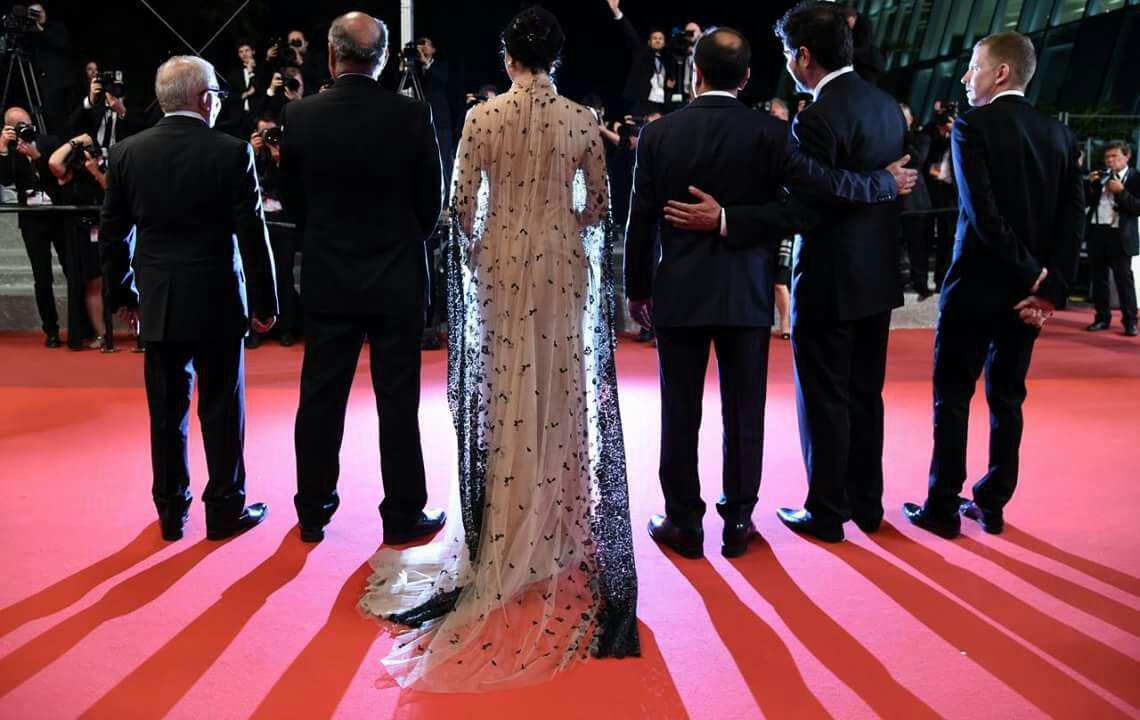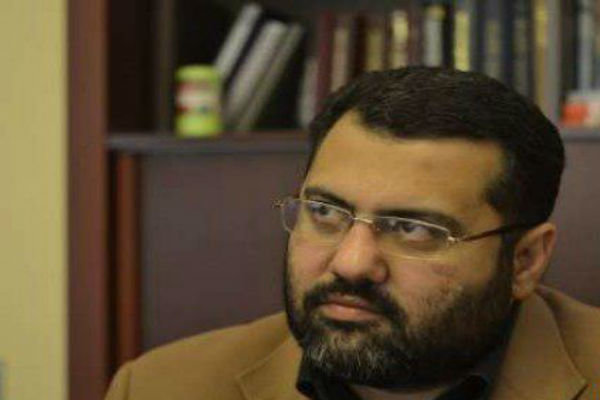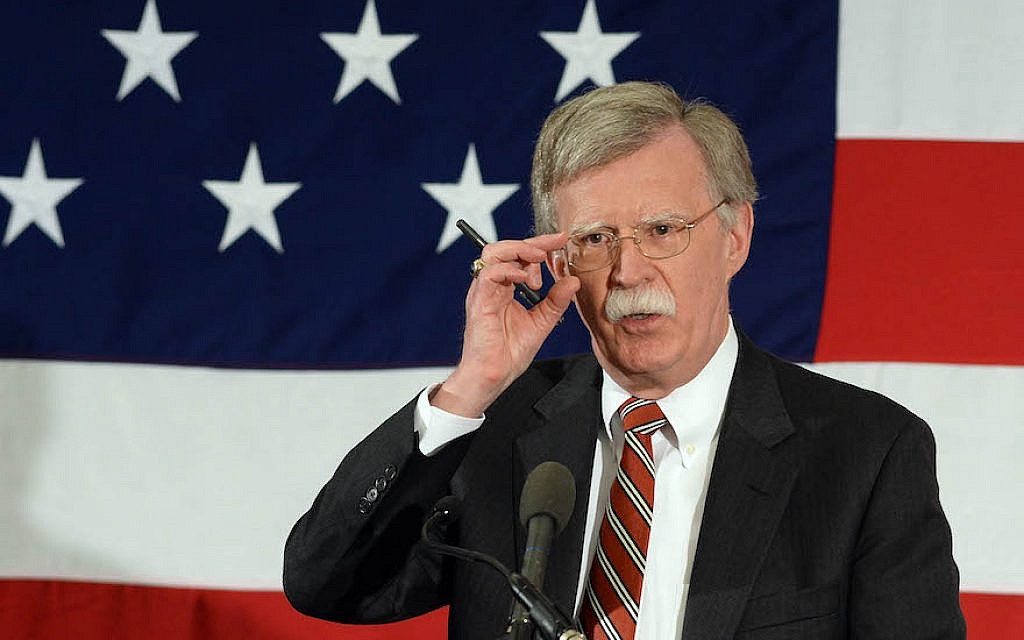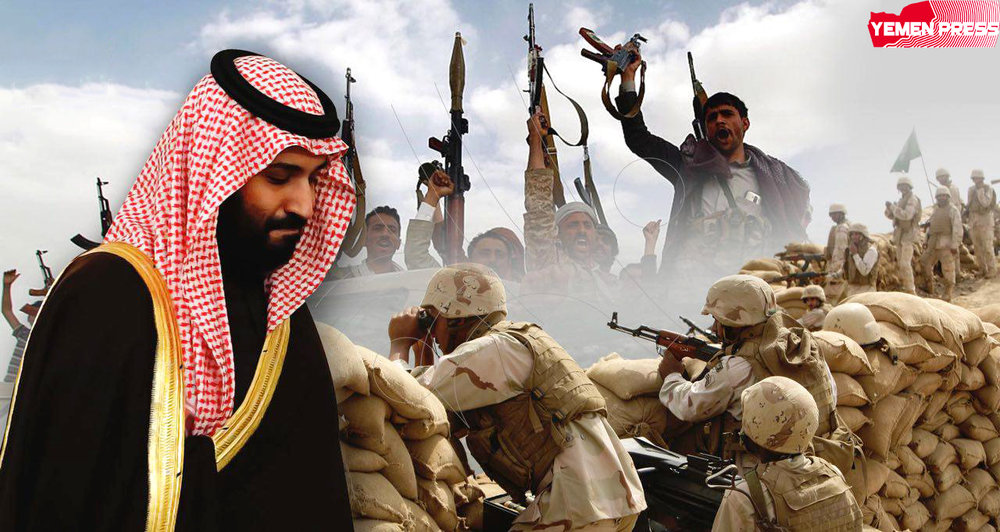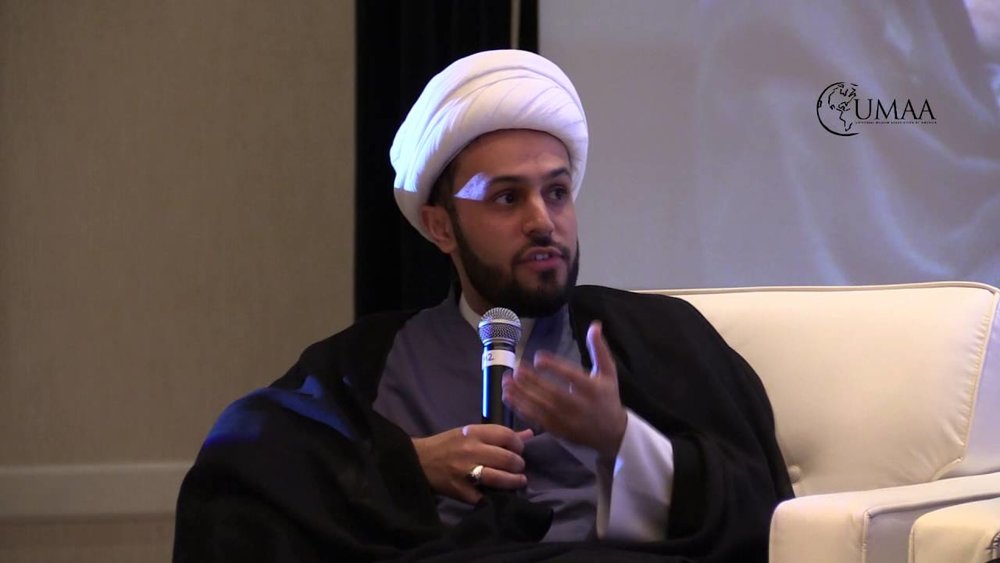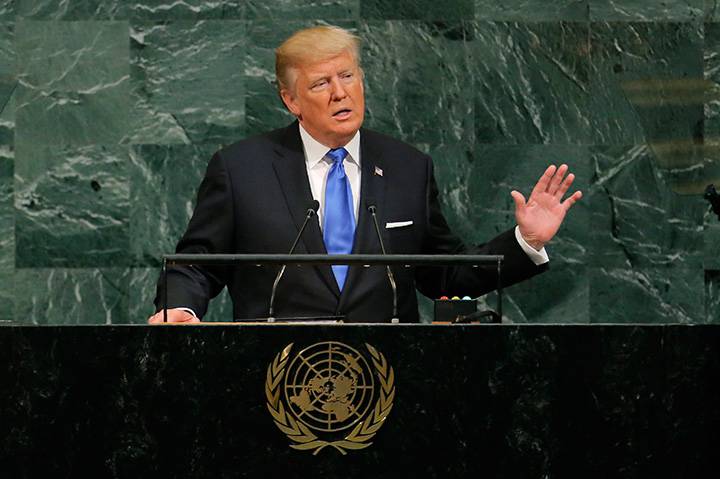
US President Donald Trump used his second day of high-profile appearances at the United Nations Wednesday to amplify Washington’s war-threats against Iran and bully countries around the world.
At a UN Security Council session ostensibly devoted to preventing the proliferation of nuclear weapons and other weapons of mass destruction, Trump put the world on notice: the US—acting in flagrant violation of the UN-backed nuclear accord that it, the four other permanent UN Security Council members, and Germany reached with Tehran in 2015—will launch the next volley in its economic war against Iran in little more than a month. Starting November 5, the US will enforce a total embargo on Iranian oil exports, the principal source of funds for its state budget, and freeze Iran’s central bank out of the US-dominated world banking system thereby crippling the rest of its foreign trade.
Companies and countries that fail to abide by these “tougher than ever before” sanctions will, Trump vowed, face “severe consequences.” That is fines, exclusion from the US market, and other “secondary sanctions.”
The US sanctions against Iran are both illegal and an act of war. They are aimed at crashing Iran’s economy and impoverishing its people so as to either force Iran’s bourgeois nationalist regime to surrender to US diktats or goad it into military action.
In his UN Security Council appearance Trump tried to legitimize this reckless, criminal enterprise with the most hackneyed denunciations. The fascist-minded billionaire accused Iran of being “the world’s leading sponsor of terror” and fueling “conflicts across” the Middle East “and beyond.”
As if the world could forget that it was US imperialism that was the principal bulwark of the bloody quarter-century long dictatorship of the Shah; that in the four decades since the 1979 Iranian Revolution Washington has waged an unrelenting campaign of economic pressure and military threats against Iran; that since 2001 the US has invaded and occupied Iran’s neighbours, Iraq and Afghanistan; that these wars are part of more than a quarter-century of ruinous wars Washington has waged across the Middle East with the aim of securing unbridled hegemony over the world’s most important oil-exporting region; and that in its regime-change wars and intrigues the US has repeatedly aligned, in Libya, Syria, and elsewhere, with al-Qaeda and other Islamist terrorists.
Trump, who doubled as chair of the Security Council session and head of the US delegation, led off the main discussion at Wednesday’s meeting with a brief ten-minute speech in which he repeated many of the threats he had made in a longer rant before the UN General Assembly Tuesday.
He denounced Iran and Russia for “enabling” the “butchery” of Bashar al-Assad’s Syrian regime. He boasted of the missile strikes the US mounted on Syria in April 2017 and April 2018 and he signaled that the US stands ready to intervene on a much wider scale should Assad and his allies launch an offensive in Idlib.
Trump, who in his first appearance at the UN General Assembly last year threatened to “totally destroy” North Korea, told the Security Council he believes the US can now work with Pyongyang. But, he insisted, there would be no lessening in the brutal sanctions that have been imposed on North Korea until it has completely “denuclearized,” and he underlined the point by denouncing unnamed countries for purportedly violating the sanctions.
The only new element in Trump’s Security Council remarks was an entirely gratuitous attack on China, which he claimed “is attempting to interfere in our upcoming 2018 (congressional) election … against my administration.”
Trump coupled this inflammatory charge to the trade war that he has launched against Beijing, with $250 billion in Chinese exports now subject to punitive US tariffs. “They do not want me, or us, to win” the elections, asserted Trump. “Because I am the first president ever to challenge China on trade. And we are winning on trade, we are winning at every level.”
The Security Council meeting was tension-filled, a product of the mounting tensions between all the great powers as they strive to assert the economic and strategic interests of their rival capitalist elites under conditions of economic crisis, trade war, surging geopolitical conflict and mounting class struggle.
French President Emmanuel Macron and British Prime Minister Theresa May both solidarized themselves with the US campaign for regime-change in Syria, with May thanking the US for spearheading last April’s airstrikes, in which both France and Britain participated. Both also said Russia needed to be called to account for the Skripal affair, recycling the utterly unsubstantiated claims that the Kremlin ordered a chemical-weapons hit on a one-time double agent.
However, both Macron and May felt compelled to restate their support for the nuclear deal and warn about the repercussions of repudiating an agreement negotiated by the great powers and at the behest and largely in conformity with the aims of Washington.
Macron and May’s remarks merely reiterated what they and German Chancellor Angela Merkel have been saying for months. However they were given added force by Tuesday’s joint declaration from the foreign ministers of the three countries and Russia and China that the European Union is setting up a “special purpose vehicle” to enable European companies and ultimately others to carry on trade with Iran in defiance of the US sanctions.
The European imperialists, as demonstrated by their history and their frantic efforts to rearm, are no less rapacious than Wall Street and Washington. But they are irate that the US has sabotaged their plans to conquer the markets and lay claim to the energy reserves of Iran, a country that business publications describe as the world’s last “liberalizing” large economy and which has a government eager to extend them lucrative concessions.
Even more grating is their fear of the economic and political fallout of the military-strategic collision that Washington is precipitating. A war between the US and Iran would engulf the entire Middle East, send oil prices soaring, precipitate a surge in refugees, and result in a bloody repartition of the region under conditions where the European powers do not as of yet have the military means to determine or decisively shape the outcome.
Many informed observers question whether the “special vehicle,” the details of which have yet to be hammered out, will prove effective in sustaining anything more than token levels of trade between Europe and Iran in the face of Washington’s capacity to inflict punishment on those who defy its sanctions. Already a “Who’s Who” of major European-based companies have announced they are pulling out of Iran.
Politically, however, the “special vehicle” represents an unmistakable challenge to Washington—all the more so that it is being mounted in conjunction with Russia and China—and one with potentially tectonic implications for the world economy and geopolitics, given the vital importance to American imperialism of maintaining the US dollar as the world’s reserve currency and principal medium of trade.
Not surprisingly, the European announcement has enraged the Iran regime-change hawks at the helm of the Trump administration. Appearing at a United Against Nuclear Iran conference in New York later Tuesday, alongside the director of Israel’s Mossad spy agency and the Saudi Foreign Minister, Trump’s National Security Adviser John Bolton and Secretary of State Mike Pompeo acted as a tag team.
Bolton ratcheted up the war threats against Iran. Addressing Tehran, he thundered, “If you cross us, our allies, or our partners; if you harm our citizens; if you continue to lie, cheat, and deceive, yes, there will indeed be hell to pay. … We are watching, and we will come after you.”
Pompeo used similar language, but also lashed out at the P-5, the other great powers that negotiated and continue to uphold the Iran nuclear accord: “I was disturbed and indeed deeply disappointed to hear remaining parties in the deal announced they are setting up a special payment system to bypass US sanctions. This is one of the most counterproductive measures imaginable for regional and global peace and security.”
Iran has emerged as a focal point of US-European tensions. But the rift is deep with Germany, the EU’s dominant power, insisting that Europe can no longer rely on the Trans-Atlantic alliance, forged to wage the Cold War, and must develop the military and financial infrastructure to assert its own predatory interests on the world stage, independently of, and, when needed, against America.
Trump, for his part, further stoked tensions with Europe in recent days. According to news reports, he railed against the EU, saying its trade practices were “worse” than China’s in a meeting with Macron Monday. And in his General Assembly speech the next day, he attacked Germany, saying it “will become totally dependent on Russian energy if it does not immediately change course” and scrap the Nord Stream II gas pipeline project.
Over the course of his two days at the UN, Trump threatened, bullied and denounced much of the world, giving voice both to the insatiable aspirations of US imperialism for world hegemony and the acute dissatisfaction of its ruling elite at the vast erosion of its economic and geopolitical power. More than a quarter-century of mounting imperialist violence has failed to reverse this decline. But the response of the American oligarchy is to double-down on aggression and militarism, setting a course for war with Iran, while mounting military-strategic offensives against Russia and China, and roiling its ostensible European allies.

